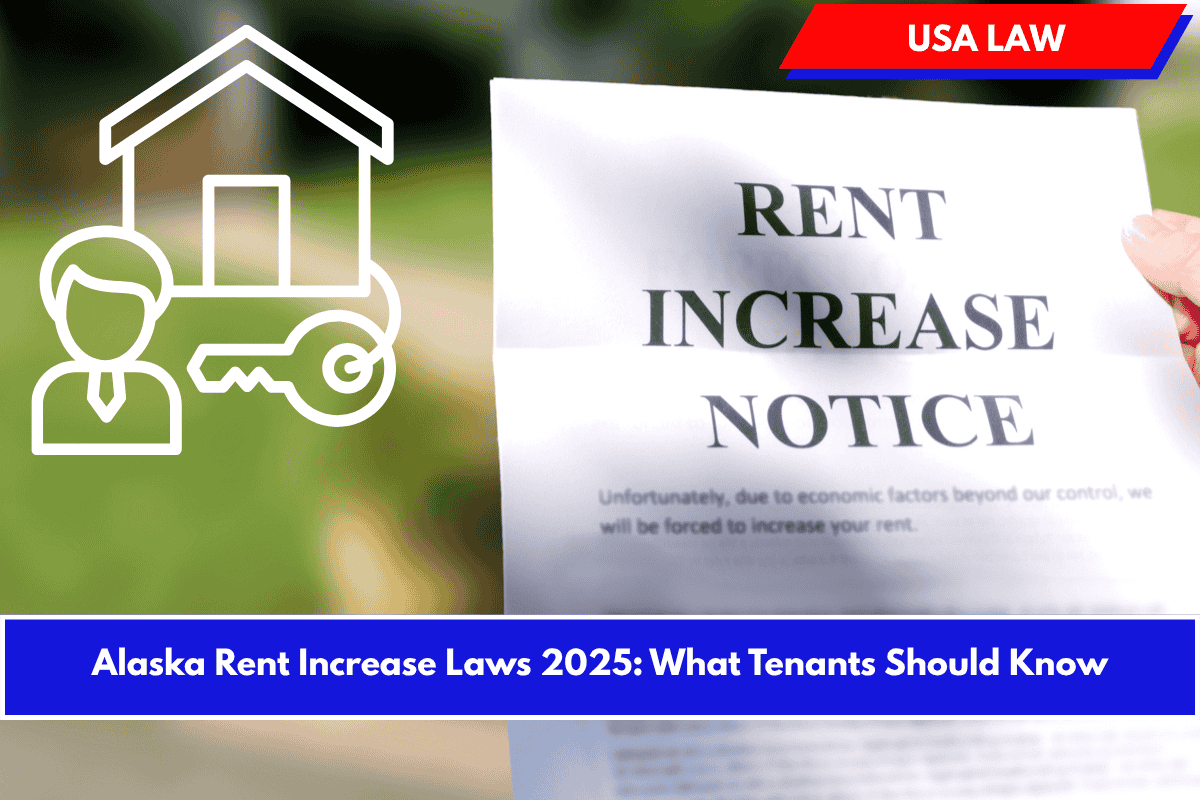No Statewide Rent Control
Alaska does not have any statewide rent control laws. This means there is no legal cap on how much a landlord can increase rent at the end of a lease term or for month-to-month tenancies. Rent amounts are generally determined by the landlord and market conditions.
Notice Requirements for Rent Increases
The key protection for tenants is the required notice period before a rent increase takes effect:
- Month-to-Month Tenancy: Landlords must provide at least 30 days’ written notice before increasing rent.
- Week-to-Week Tenancy: Landlords must give at least 14 days’ written notice.
- Fixed-Term Lease: Rent cannot be increased during the lease term unless the lease agreement specifically allows for it. Otherwise, any increase can only take effect at renewal, with notice as specified in the lease.
How Notice Must Be Given
The notice must be in writing and clearly state the new rent amount and the date the increase will take effect. Delivery can be by mail, email, or direct handover, but landlords should keep a record of the communication.
When Rent Increases Are Not Allowed
A rent increase is illegal if it is:
- Discriminatory: Based on race, religion, gender, disability, familial status, or other protected classes under the Fair Housing Act.
- Retaliatory: In response to a tenant exercising legal rights, such as reporting unsafe conditions.
- In Violation of Lease Terms: During a fixed-term lease, unless the lease allows for mid-term increases.
No Limit on Frequency or Amount
There is no state-imposed limit on how much or how often rent can be increased, as long as the proper notice is given and other legal requirements are met. For month-to-month tenancies, this means rent could theoretically be increased every month with the required 30-day notice.
Tenant Rights and Recourse
Tenants have the right to:
- Receive proper notice before a rent increase.
- Contest increases that are discriminatory, retaliatory, or violate the lease.
- Negotiate lease renewals or seek alternative housing if the new rent is unaffordable.
- Seek legal advice or contact local housing authorities if they believe the increase is unlawful.
Alaska Rent Increase Laws (2025)
| Tenancy Type | Notice Required | Limit on Amount? | Limit on Frequency? | Increase Allowed During Lease? |
|---|---|---|---|---|
| Month-to-Month | 30 days | No | No | At lease renewal or with notice |
| Week-to-Week | 14 days | No | No | At lease renewal or with notice |
| Fixed-Term Lease | As per lease | No | No | Only if lease allows |
Other Important Tenant Protections
- Habitability: Landlords must maintain rental units in habitable condition regardless of rent increases.
- Security Deposits: Security deposit rules are separate from rent increases and are regulated by state law.
What Tenants Should Do
- Carefully review your lease for any clauses about rent increases.
- Ensure you receive written notice with the required advance time.
- If you believe a rent increase is illegal, document all communications and seek legal help if needed.
- Consider negotiating with your landlord or looking for alternative housing if the new rent is unaffordable.
For more details, review the Alaska Uniform Residential Landlord & Tenant Act or contact local tenant advocacy organizations.
Sources
- https://www.steadily.com/blog/how-much-can-a-landlord-raise-rent-in-alaska
- https://alaskalawhelp.org/resource/frequently-asked-questions-about-landlord-and
- https://american-apartment-owners-association.org/landlord-tenant-laws/alaska/
- https://www.hemlane.com/resources/alaska-tenant-landlord-law/
- https://www.steadily.com/blog/rent-increase-laws-regulations-alaska











